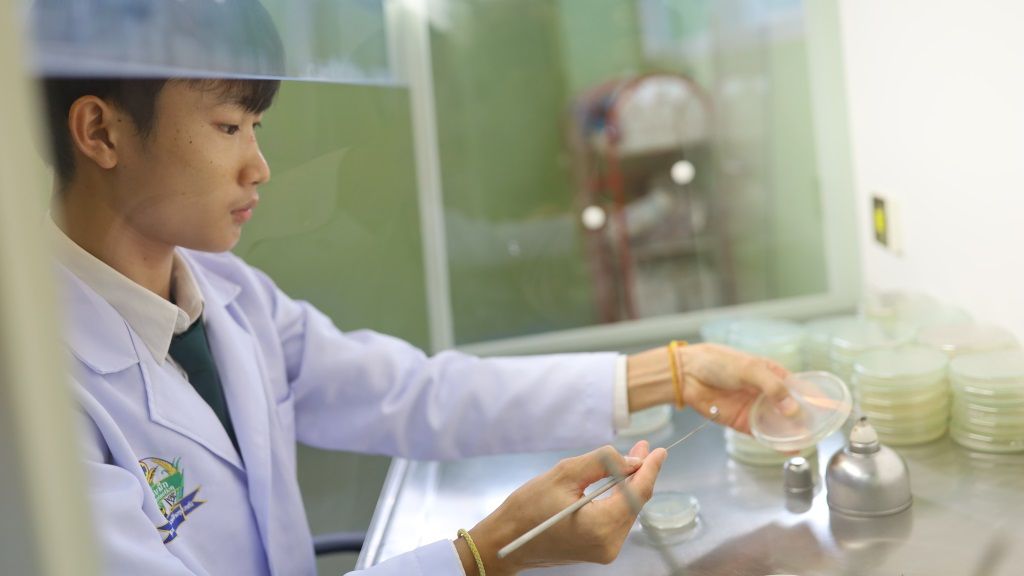Raising Food Standards for Cross-Border Trade in the Lao People's Democratic Republic

Ensuring food is safe to eat is a public good. People’s health depends on it, and so does the health of economies. People and countries won’t buy food if they are not certain it’s safe, but they’ll often buy more of it when they can be sure that it is.
Quality counts too. “Improving our sanitary and phytosanitary (SPS) handling standards is important because the countries around us have already done so,” says Chitpasong Kousonsavath, coordinator of the food science course in the Faculty of Agriculture at the National University of Laos. “It’s a globalized world. We simply can’t stand still.”
Building safe, secure systems for production and safe handling of agricultural products for international trade is an important part of ADB’s regional ADF grant operations.
ADF financing for the Improved Sanitary and Phytosanitary Handling in Greater Mekong Subregion Trade Project has been helping Cambodia and the Lao PDR upgrade their SPS management systems since 2012. One aim has been to boost the quality and volume of sales of agriculture, food, and forestry products to neighboring GMS countries such as the People’s Republic of China (PRC) and Thailand.
Additional financing through a $10 million grant under ADF 12 has been expanding the Faculty of Agriculture and upgrading training courses at the National University of Laos as part of an overall effort to strengthen the country’s surveillance and inspection programs for plant protection, animal health, and food safety and bring its SPS standards more in line with those of other GMS countries.
“Improving our sanitary and phytosanitary handling standards is important because the countries around us have already done so. It’s a globalized world. We simply can’t stand still.”--Chitpasong Kousonsavath, Food Science course coordinator
Students in white lab coats now using stateof-the-art equipment to examine petri dishes containing samples of plants, insects, and animal products at the agriculture faculty’s Nabong Campus are working in the teaching and laboratory facilities developed under the project’s first phase. Their curricula, also newly developed under the project, cover plant protection, veterinary science, agricultural economics, and food technology.
In addition to more equipment and curriculum support, the new grant will continue a regional scholarship program for teachers and students, and extend internships for graduates at the ministries of agriculture and health.
Food science course coordinator Chitpasong Kousonsavath sees the students on the frontline of her country’s drive to achieve sound SPS standards at home and boost the fast-growing cross-border trade in agriculture, food, and forestry products.
“We need specialized people to run laboratories, to do testing, and to work at the borders and in the food safety and quarantine sectors,” she says. “That is how we can ensure that our own food is not contaminated and that the products we deliver to our neighbors meet regional standards.”
Kinnaly Phommasack, who coordinates the ADF project’s management at the Ministry of Agriculture, says the lack of approved labs or SPS certification meant that the Lao PDR could not previously officially export food to other countries. “With the training and a proper laboratory established by the project, we are testing foods internally and exporting rice to the PRC,” she says.
Negotiations with the PRC are underway for more purchases, and SPS certification has substantially boosted the returns the country’s rice can fetch in international markets. Kinnaly says that, when assured of safety and quality, buyers will be more willing to contract through official channels and pay a fairer price.
This was first posted on the ADB website.
Last Updated: 31 January 2023
